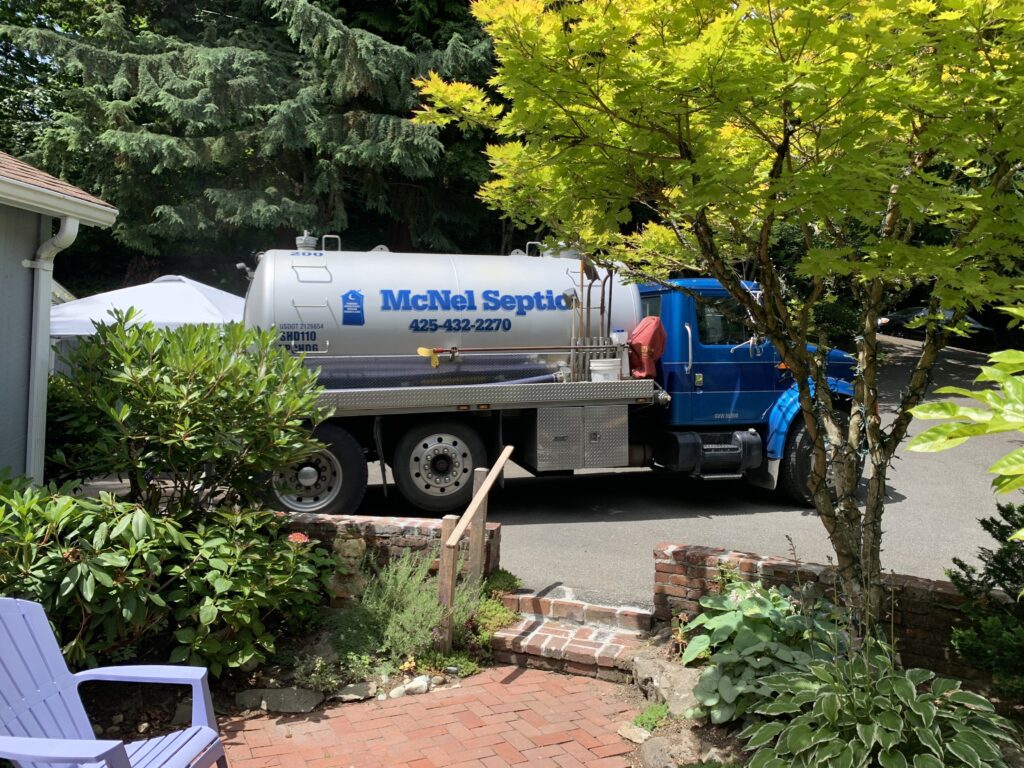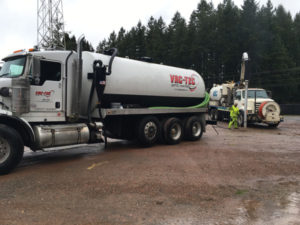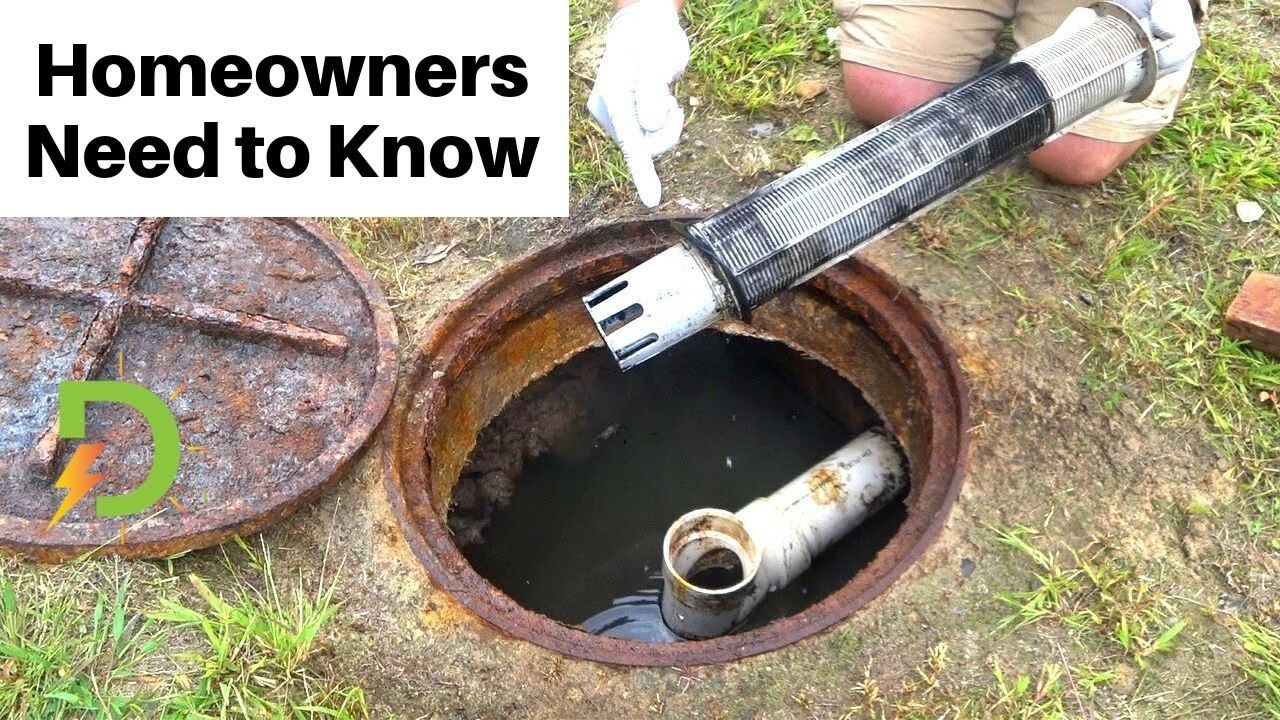If you’re a homeowner in Bothell and you haven’t thought about septic tank cleaning, it’s time to give it some attention. Maintaining a clean and well-functioning septic tank is essential for a healthy and hygienic home environment. With our professional septic tank cleaning services in Bothell, you can ensure that your tank is thoroughly cleaned, preventing any potential odors, backups, or costly repairs down the line. Trust us to take care of your septic tank cleaning needs, so you can enjoy peace of mind and a smoothly running system.
Importance of Septic Tank Cleaning
Preventing system failures
Regular septic tank cleaning is crucial for preventing system failures. Over time, solid waste and sludge accumulate in the tank, which can lead to clogs and blockages. If not cleaned out in a timely manner, these blockages can cause the system to back up, resulting in sewage backups in your home or seepage into your yard. This not only poses a significant inconvenience but can also lead to costly repairs or even the need for a complete system replacement.
Protecting the environment
Proper septic tank cleaning also plays a vital role in protecting the environment. When a septic system is not regularly cleaned, it can lead to the release of harmful bacteria, viruses, and chemicals into the soil and groundwater. This contamination poses a risk to both human health and the local ecosystem. By regularly cleaning your septic tank, you are ensuring that these potentially harmful substances are properly contained and disposed of, reducing the risk of contamination.
Avoiding health hazards
Another important reason to prioritize septic tank cleaning is to avoid health hazards. When a septic system is not properly maintained, it can produce foul odors that permeate your home and surrounding outdoor areas. These odors can be not only unpleasant but also indicative of a more significant issue. Additionally, a poorly functioning septic system can become a breeding ground for bacteria and other pathogens, posing a risk to the health of you and your family. By regularly cleaning your septic tank, you can eliminate these health hazards and maintain a clean and safe living environment.
Signs that Your Septic Tank Needs Cleaning
Slow drains and toilets
One of the first signs that your septic tank may need cleaning is slow drains and toilets. If you notice that water is draining slowly from sinks, showers, or toilets, it could be an indication that your septic tank is reaching capacity. The accumulation of solid waste and sludge in the tank can obstruct the pipes, leading to slow drainage. It is important not to ignore this sign and address the issue promptly to prevent further complications.
Foul odors
Foul odors emanating from your drains, toilets, or even from the ground in your yard can be a clear indication that your septic tank needs cleaning. The decomposition of waste in the tank can produce unpleasant smells that can permeate your home and outdoor spaces. If you notice persistent odors that do not go away even after cleaning, it is recommended to have your septic tank inspected and cleaned by professionals.
Pooling water in the yard
If you observe pooling water or soggy areas in your yard, it could be an indication that your septic tank is in need of cleaning. When the tank becomes full or clogged, it can result in the backup of wastewater, causing it to seep into your yard. This can lead to waterlogged areas and even the growth of algae or other undesirable plants. If you notice these signs, it is essential to address the issue promptly to prevent potential damage to your property and the environment.
Frequency of Septic Tank Cleaning
Depends on household size
The frequency of septic tank cleaning depends on the size of your household. A larger household with more occupants will generate more wastewater and solid waste, which means that the tank will fill up faster. As a general guideline, it is recommended to have a septic tank cleaned and pumped every 3 to 5 years for a typical 3 to 4 bedroom household. However, if you have a larger household or excessive water usage, more frequent cleanings may be necessary.
Depends on water usage
Water usage is another factor that affects the frequency of septic tank cleaning. The more water you use, the more strain it puts on your septic system. Activities such as excessive laundry, long showers, or running multiple appliances that use water simultaneously can increase the amount of wastewater entering your septic tank. As a result, your tank may require more frequent cleanings to prevent overfilling and potential system failures.
Depends on tank size
The size of your septic tank also plays a role in determining how often it needs to be cleaned. Smaller tanks have less storage capacity for wastewater and solid waste, which means they will fill up more quickly. If you have a smaller tank, it may be necessary to have it cleaned more frequently, typically every 1 to 2 years. On the other hand, larger tanks can hold more waste and may require less frequent cleanings. Consulting with a septic tank professional can provide you with a better understanding of how often your particular tank should be cleaned.
Professional Septic Tank Cleaning Services
Hiring a licensed and experienced company
When it comes to septic tank cleaning, it is important to hire a licensed and experienced company. Septic systems are complex, and improper cleaning techniques can cause damage or lead to further issues. By hiring a professional company, you can ensure that the cleaning process is done efficiently and effectively, minimizing the risk of damage and maximizing the lifespan of your septic system.
Inspection and evaluation
Professional septic tank cleaning services often include an inspection and evaluation of your system. This ensures that any potential issues or underlying problems are identified before the cleaning process begins. During the inspection, the technician will assess the condition of the tank, check for signs of damage or leakage, and evaluate the overall health of the system. This step is crucial in determining the most appropriate cleaning method and identifying any necessary repairs or maintenance that may be required.
Pumping and disposal
Once the inspection is complete, the septic tank cleaning process usually involves pumping out the accumulated waste and sludge from the tank. This is typically done using powerful vacuum trucks that can efficiently and safely remove the waste. The waste is then transported to an authorized disposal facility, where it is properly handled and treated in accordance with environmental regulations. Professional septic tank cleaning services take care of the entire process, ensuring that all waste is disposed of responsibly.
Do-It-Yourself Septic Tank Cleaning
Safety precautions
Cleaning a septic tank yourself can be a complex and potentially hazardous task. It is essential to take proper safety precautions to protect yourself and the environment. Before attempting any DIY septic tank cleaning, it is recommended to educate yourself about the process and the potential risks involved. It is also important to wear appropriate protective gear, such as gloves and goggles, to minimize the risk of exposure to harmful bacteria or chemicals.
Tools and equipment required
To perform a DIY septic tank cleaning, you will need specific tools and equipment. These may include a septic tank pump or vacuum, hoses, protective clothing, and cleaning agents. It is essential to use only approved cleaning agents that are safe for septic systems and the environment. Using the wrong products can disrupt the balance of beneficial bacteria in the tank and cause more harm than good. Additionally, having access to a suitable waste disposal site is crucial for proper disposal of the waste.
Step-by-step cleaning process
Cleaning a septic tank yourself involves several steps. It is important to follow a proper procedure to ensure that the cleaning is done correctly and safely. The process typically involves locating and accessing the septic tank, pumping out the waste using a vacuum or pump, inspecting the tank for any signs of damage or issues, and then properly disposing of the waste. It is essential to carefully follow instructions and guidelines to avoid any mishaps or further damage to your septic system.
Septic Tank Cleaning Cost
Factors influencing the cost
The cost of septic tank cleaning can vary depending on several factors. The size of your tank, the level of waste accumulation, the accessibility of the tank, and the location of your property can all impact the overall cost. Additionally, any necessary repairs or maintenance identified during the cleaning process may incur additional expenses. It is recommended to get quotes from multiple septic tank cleaning companies to compare costs and services.
Average cost in Bothell
The average cost of septic tank cleaning in Bothell typically ranges from $300 to $700. However, this cost can vary depending on the factors mentioned above. It is important to keep in mind that the cost of cleaning is a small investment compared to the potential costs of repairs or system replacements resulting from neglected maintenance.
Cost-saving tips
To reduce the cost of septic tank cleaning, there are a few cost-saving tips to consider. Regular maintenance and proper care of your septic system can help extend the time between cleanings, reducing the frequency and overall cost. Additionally, scheduling cleanings during off-peak seasons when demand is lower can sometimes result in discounted rates. It is also beneficial to compare prices from different companies and inquire about any discounts or promotions that may be available.

Maintaining a Healthy Septic System
Regular inspections
Regular inspections are essential for maintaining a healthy septic system. By having your septic tank inspected on a regular basis, potential issues can be identified early on and addressed before they escalate into more significant problems. Inspections allow professional technicians to assess the condition of your tank, check for leaks or damage, and ensure that it is functioning optimally. It is recommended to have your septic tank inspected at least once a year or as advised by a septic system professional.
Proper waste disposal
Proper waste disposal is key to maintaining a healthy septic system. Avoid flushing non-biodegradable items such as paper towels, feminine hygiene products, or baby wipes down the toilet, as these can lead to blockages or damage to the system. It is also important to be mindful of what goes down your drains. Grease, chemicals, and medications should never be poured down the drain, as they can disrupt the balance of bacteria in the tank and harm the environment. Proper waste disposal practices help prevent clogs, reduce the strain on the system, and promote its longevity.
Conserving water
Conserving water is not only beneficial for the environment but also for the health of your septic system. Excessive water usage can overload the system, leading to increased strain and potential failures. Simple water conservation practices such as fixing leaks, using efficient appliances, and limiting water usage during peak times can help reduce the load on your septic system. Conserving water not only helps minimize the need for frequent cleanings but also contributes to the overall sustainability of your household.
Common Septic Tank Problems
Clogs and blockages
Clogs and blockages are common septic tank problems that can occur when waste and sludge accumulate in the tank or when non-biodegradable items are flushed down the toilet or poured down the drain. These blockages can obstruct the flow of wastewater, leading to slow drainage, backups, or even bursting of pipes. Regular septic tank cleaning helps prevent these issues by removing the accumulated waste before it causes significant problems.
Root infiltration
Root infiltration is another common problem that can affect septic systems, especially in older homes with mature trees or shrubs. Tree roots have a tendency to seek out sources of water, and if they find their way into the pipes or the septic tank, they can cause damage by blocking the flow of wastewater or by causing cracks in the tank. Regular inspections and maintenance can help detect root infiltration early on, allowing for timely interventions to prevent further damage.
Tank cracks and leaks
Cracks or leaks in the septic tank can occur due to a variety of reasons, including age, poor installation, or structural damage. These cracks and leaks can lead to wastewater seepage into the surrounding soil or groundwater, posing a risk to both human health and the environment. Regular inspections and timely repairs can help identify and address any cracks or leaks before they worsen and result in costly repairs or system replacements.

Preventing Septic Tank Issues
Avoiding flushing non-biodegradable items
One of the most effective ways to prevent septic tank issues is to avoid flushing non-biodegradable items down the toilet or pouring them down the drain. Non-biodegradable items such as paper towels, baby wipes, or feminine hygiene products can cause clogs and blockages, leading to system failures. It is important to dispose of these items in the appropriate waste receptacles to prevent any potential damage to your septic system.
Limiting grease and chemicals
Grease and chemicals should never be poured down the drain, as they can disrupt the balance of bacteria in the septic tank and harm the environment. Grease solidifies as it cools, leading to clogs and blockages in the pipes. Chemicals, such as bleach or strong cleaners, can kill beneficial bacteria that are necessary for breaking down waste in the tank. It is essential to dispose of grease in a separate container and to use environmentally friendly cleaning products to protect the health of your septic system.
Monitoring water usage
Monitoring water usage is another important step in preventing septic tank issues. Excessive water usage can overload the system and lead to complications such as slow drainage or backups. By being mindful of your water consumption and implementing water-saving practices, such as fixing leaks or using efficient appliances, you can reduce the strain on your septic system. This, in turn, helps prevent potential failures and extends the lifespan of your septic system.
Benefits of Professional Septic Tank Cleaning
Extends the lifespan of the system
Regular professional septic tank cleaning helps extend the lifespan of the system. By removing accumulated waste and ensuring that the tank is functioning optimally, you can prevent system failures and avoid the need for costly repairs or replacements. Proper maintenance and regular cleanings allow your septic system to continue operating efficiently for many years to come.
Reduces the risk of costly repairs
Investing in professional septic tank cleaning reduces the risk of costly repairs. By addressing any potential issues early on through inspections and evaluations, you can catch problems before they escalate into larger, more expensive repairs. Timely cleanings and maintenance help maintain the health of your septic system and minimize the chances of major breakdowns or failures.
Maintains a healthy living environment
A clean and well-maintained septic system contributes to a healthy living environment. By regularly cleaning your septic tank, you can prevent foul odors, backups, and potential health hazards associated with a poorly functioning system. A clean and properly functioning septic system ensures that wastewater is contained and disposed of in a safe and environmentally friendly manner, allowing you to enjoy a clean and worry-free living space.
In conclusion, septic tank cleaning is of utmost importance for preventing system failures, protecting the environment, and avoiding health hazards. Signs that your septic tank needs cleaning include slow drains and toilets, foul odors, and pooling water in the yard. The frequency of septic tank cleaning depends on household size, water usage, and tank size. Professional septic tank cleaning services offer licensed and experienced technicians who provide inspection, evaluation, pumping, and proper disposal. Alternatively, you can choose to perform a do-it-yourself septic tank cleaning, but it requires safety precautions, specific tools, and a step-by-step cleaning process. The cost of septic tank cleaning can vary depending on factors such as tank size and location. To maintain a healthy septic system, regular inspections, proper waste disposal, and water conservation are necessary. Common septic tank problems include clogs and blockages, root infiltration, and tank cracks and leaks. Preventing septic tank issues involves avoiding flushing non-biodegradable items, limiting grease and chemicals, and monitoring water usage. The benefits of professional septic tank cleaning include extending the lifespan of the system, reducing the risk of costly repairs, and maintaining a healthy living environment. By prioritizing septic tank cleaning, you can ensure the longevity and efficiency of your septic system while safeguarding your health and the environment.


